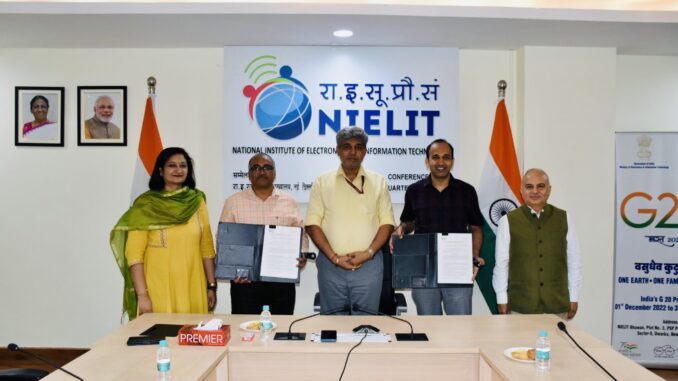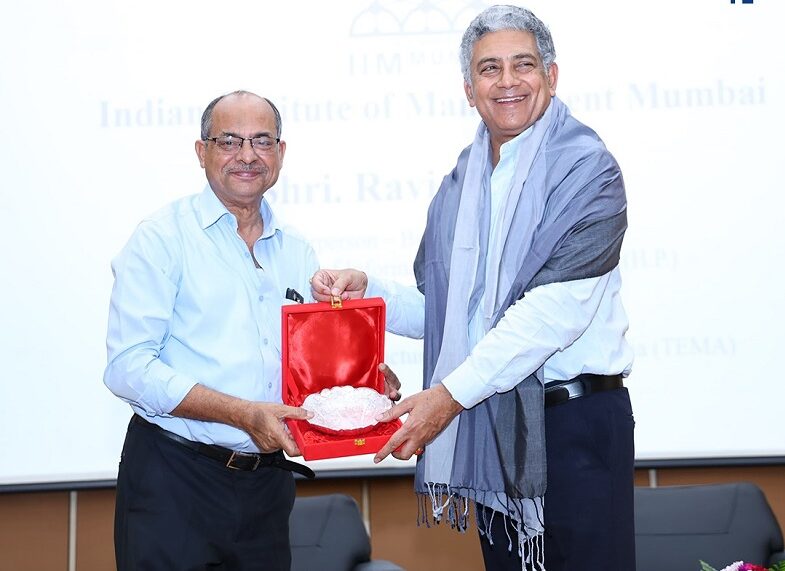Sept 27th, 2024 – CBRE South Asia Pvt. Ltd, India’s leading real estate consulting firm, today released its report titled, ‘Fortifying India’s I&L landscape with a new manufacturing growth formula’. The report reveals that the manufacturing sector’s growth has significantly contributed to warehousing demand. The share of sectors catering to the manufacturing space, including engineering & manufacturing, electronics & electricals and auto & ancillary sectors, within the total warehousing demand across major cities, has increased substantially, growing from 15% in 2019 to 24% in 2023 and 25% in H1 2024. The total leasing for warehousing from these manufacturing-related sectors stood at 4.1 mn. sq. ft. in H1 2024.
As per the report, Pune has shown the highest increase in warehousing and industrial space take-up by manufacturing players, growing from 6% in 2019 to 13% in H1 2024. Delhi-NCR and Kolkata have also seen notable increases, reaching 18% and 12%, respectively, in H1 2024*. This surge is attributed to factors like adoption of the China + 1 strategy by global manufacturers and supportive policies such as the Production Linked Incentive (PLI) scheme, now covering 14 sectors.
Sectoral distribution of warehouse leasing in manufacturing sector
India’s engineering and manufacturing sector has seen a significant surge in warehouse leasing. The report shows that the sector’s share of total warehouse leasing grew from 8% in 2023 to 11% in H1 2024. The top sub-sectors driving warehouse leasing from 2019 to H1 2024 include domestic appliances, auto components, and the automobile industry, reflecting robust demand across these key segments.
India’s economy continues to demonstrate resilience, exhibiting sustained growth underpinned by several positive indicators. With a surging GDP in 2023 and a projected growth rate of 6.5-7% over 2024-2026, India emerges as one of the frontrunners in the global economic race. This ambitious goal appears increasingly attainable due to a decade of successful policy reforms that have propelled economic growth. The manufacturing sector plays a key role, contributing 14% of GDP and employing over 27.3 million people. In June 2024, the Services PMI hit a 14-year high of 60.5, while manufacturing PMI stood at 58.3, reflecting expansion and the strongest growth in three-and-a-half years. The Index of Industrial Production (IIP) grew by 4.2% in June, pushing overall industrial growth to 5.8% in FY 2023-24.
India’s favorable business environment, boosted by streamlined regulations and a jump in global rankings, has attracted strong foreign direct investment (FDI). Private consumption also continues to drive growth, with its share of GDP rising from 56.5% in FY2012 to 60.3% in FY24.
Favorable Government policies enabling manufacturing growth
To reduce high logistics costs, the government is optimizing freight movement by shifting to more cost-effective and sustainable transport modes through initiatives:
- GatiShakti National Master Plan and logistics-specific reforms
- These efforts aim to improve supply chain efficiency, promote green practices, and enhance India’s manufacturing competitiveness globally
In addition, the Indian government is working to reduce production costs through a series of tax reforms, incentives, and infrastructure improvements. Corporate tax cuts, the Goods and Services Tax (GST), and R&D tax benefits are among the measures supporting growth. Key policies such as the Production Linked Incentive (PLI) Schemes, Make in India, and the National Logistics Policy further reinforce India’s competitive edge.
Anshuman Magazine, Chairman & CEO, India, Southeast Asia, Middle East & Africa, CBRE, said,“Amidst evolving global geopolitical landscapes and economic challenges, India presents a compelling opportunity for growth. India’s manufacturing sector is on the cusp of a transformative journey, attracting significant interest on the global stage. This remarkable trajectory is driven by a combination of factors, including a stable investment environment, strategic government initiatives, and a thriving domestic market.
Continued economic development in both leading and emerging Asia Pacific markets will boost consumer demand for manufactured goods and further fuel the growth of the region’s manufacturing sector”.
Rami Kaushal, Managing Director, Consulting & Valuation Services, India, Middle East & Africa, CBRE, said, “India’s robust industrial infrastructure has been crucial in driving its manufacturing sector forward. It emphasises the nation’s appeal for ease of business, encourages collaboration, and enhances productivity. Furthermore, it has attracted foreign direct investments (FDIs), driven export growth, and created substantial employment opportunities, cumulatively contributing to the manufacturing sector’s expansion.
Additionally, the government is taking steps to attract private capital and implement administrative reforms to streamline the planning and execution of infrastructure investments, aiming to improve efficiency”.
Ram Chandnani, Managing Director, Advisory & Transactions Services, CBRE India, said, “The government’s focus on “Make in India” and “Atmanirbhar Bharat” initiatives have set the stage for India’s manufacturing revolution. Strategic government initiatives, a thriving domestic market and a young and skilled workforce, are all coming together to make India a global manufacturing leader. India’s focus on trade agreements holds immense potential for its manufacturing sector and will act as a trade catalyst. This presents a golden opportunity for India’s manufacturers to diversify from the dominance of the services sector and capture a larger share of the global manufacturing pie”.
Way Forward: India’s Push Towards Becoming a Manufacturing Giant
Advanced manufacturing leverages state-of-the-art technologies to streamline and optimise every aspect of the production process. By embracing these cutting-edge techniques, companies gain a significant competitive advantage, enhancing their productivity, efficiency, and adaptability.
| Challenge |
|
Recommendations |
|
| Project timelines and profitability impacted by delays in land acquisition and obtaining necessary clearances |
|
-Nationwide single window clearance system.
-Expedite land acquisition and environmental clearances.
-Dedicated committees to oversee project planning and implementation.
-Securing land and other necessary approvals prior to issuing project tenders. |
|
| Complex infrastructure financing |
|
-Undertake more comprehensive longer-term planning by all levels of government.
– Develop suitable investment vehicles and products to attract institutional investors.
– Generate revenue streams for new / existing projects |
|
|
|
| Lack of inter-department coordination delaying clearances / approvals |
|
|
|
-Set clear objectives for all stakeholders and decision-makers.
-Establish an accountability matrix and a timebound dispute resolution mechanism. |
|
| Complex regulatory landscape |
|
– Adopt a uniform and simplified tax structure for infrastructure projects
-Develop resilient processes to decode and address complex regulations. |
|
| Limited connectivity of industrial complexes |
|
– Adopt ‘comprehensive industrial clusters’ instead of individual parks such as textile clusters, chemical clusters, etc.
– New port infrastructure development planning to include integrated industrial zones and comprehensive last-mile road and rail connectivity. |
|
| Lack of a domestic container manufacturing ecosystem |
|
|
|
– Include the manufacturing of Corten steel as an integral part of the policy essential to make the production of containers cheaper in India.
– Rework the PLI scheme for container manufacturing |







